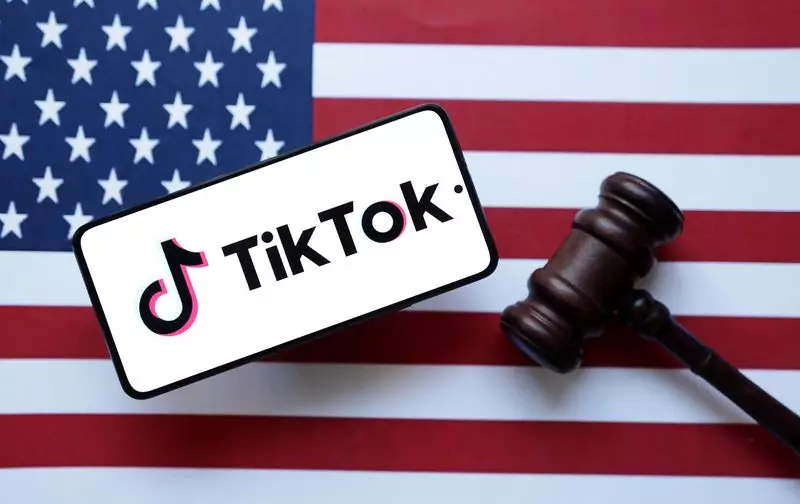On a seemingly ordinary Saturday, the landscape of social media took a tumultuous turn as TikTok, the popular short-video platform, ceased operations for approximately 170 million users in the United States. This unforeseen interruption can be attributed to a recent ruling by the U.S. Supreme Court, which upheld a national security-driven injunction poised to ban the application. Enacted as a result of fears surrounding data security and foreign influence, legislation has stipulated that TikTok’s parent company, ByteDance, must divest its ownership of TikTok or face a complete shutdown as of January 19, 2024. The clock now ticks toward uncertainty, echoing the apprehension tied to the transition of presidential power and the future of one of America’s favorite apps.
With TikTok effectively barred from operating within U.S. borders, the ripple effects on its vast user base are profound. Notably, existing users cannot download updates or acquire the app through mainstream platforms such as the Apple App Store or Google Play Store. This ultimatum poses a significant hurdle for millions who have utilized TikTok as a source of entertainment, creativity, and even livelihood. Intriguingly, attempts by users to bypass the ban using Virtual Private Networks (VPNs) have largely proven futile. Content creators—who have built independent careers leveraging the app’s vast reach—are now racing against time, urging followers to transition to alternative platforms like Instagram and YouTube to maintain their engagement and income streams.
The digital landscape now stands in a state of flux, as both creators and consumers seek new platforms to fill the void left by TikTok.
In the world of advertising, a vacuum created by TikTok’s abrupt cessation presents both a challenge and an opportunity. Industry insiders are frantically devising contingency plans, bracing for a significant financial downturn should the shutdown persist. This “hair on fire” moment underscores the necessity for advertisers to pivot quickly, as upwards of $11 billion in annual advertising revenue teeters on the brink of being redirected. Major players in the digital marketplace, including Meta and Snap, are surely assessing the potential influx of advertising dollars as brands scramble to divest from TikTok and seek refuge in other platforms.
Furthermore, TikTok has attempted to woo advertisers by introducing new tools aimed at simplifying ad creation and management. However, the timing appears less than fortuitous with the looming shutdown overshadowing the platform’s advertising promises. Consequently, the next quarter will be pivotal as the advertisement landscape shifts and brands hastily align their resources elsewhere.
A Tension Amplifier: U.S.-China Relations
The impending ban on TikTok cannot be viewed in isolation; it has wider implications for U.S.-China relations, further degrading the already tenuous ties between the two global powers. Analysts warn that the ban is likely to exacerbate existing trade tensions, particularly as recent policy moves in the form of export restrictions on advanced semiconductors illustrate a broader pattern of economic conflict. The potential for a hardline approach against TikTok may serve as a political maneuver as well, with suggestions that the incoming administration could leverage the situation to negotiate concessions from China.
While some experts posit that the ban offers political leverage, it simultaneously risks turning TikTok’s user base into a point of contention in the debate over data privacy and security—an issue that has lingered for years. The potential for political posturing only adds layers to an already complex trade relationship.
As discussions about TikTok’s future unfold, speculation abounds regarding potential buyers willing to step into the fray. While TikTok has repeatedly stated that a sale from ByteDance is unfeasible, entrepreneurial figures such as Frank McCourt and even Elon Musk have emerged as candidates for acquiring TikTok’s U.S. operations. Yet, these speculative talks must contend with the reality that such acquisitions would need to navigate regulatory scrutiny and national security considerations.
The halting of TikTok’s operations marks a pivotal moment in social media history. As the dust settles, the implications will extend well beyond a mere app shutdown—impacting users seeking alternatives, advertisers scrambling for new venues, and potentially reshaping geopolitical dynamics between the United States and China. The world watches with bated breath as stakeholders respond to this crisis, determining not just the fate of a beloved platform, but the broader conversation surrounding data privacy and foreign technology in digital spaces.

